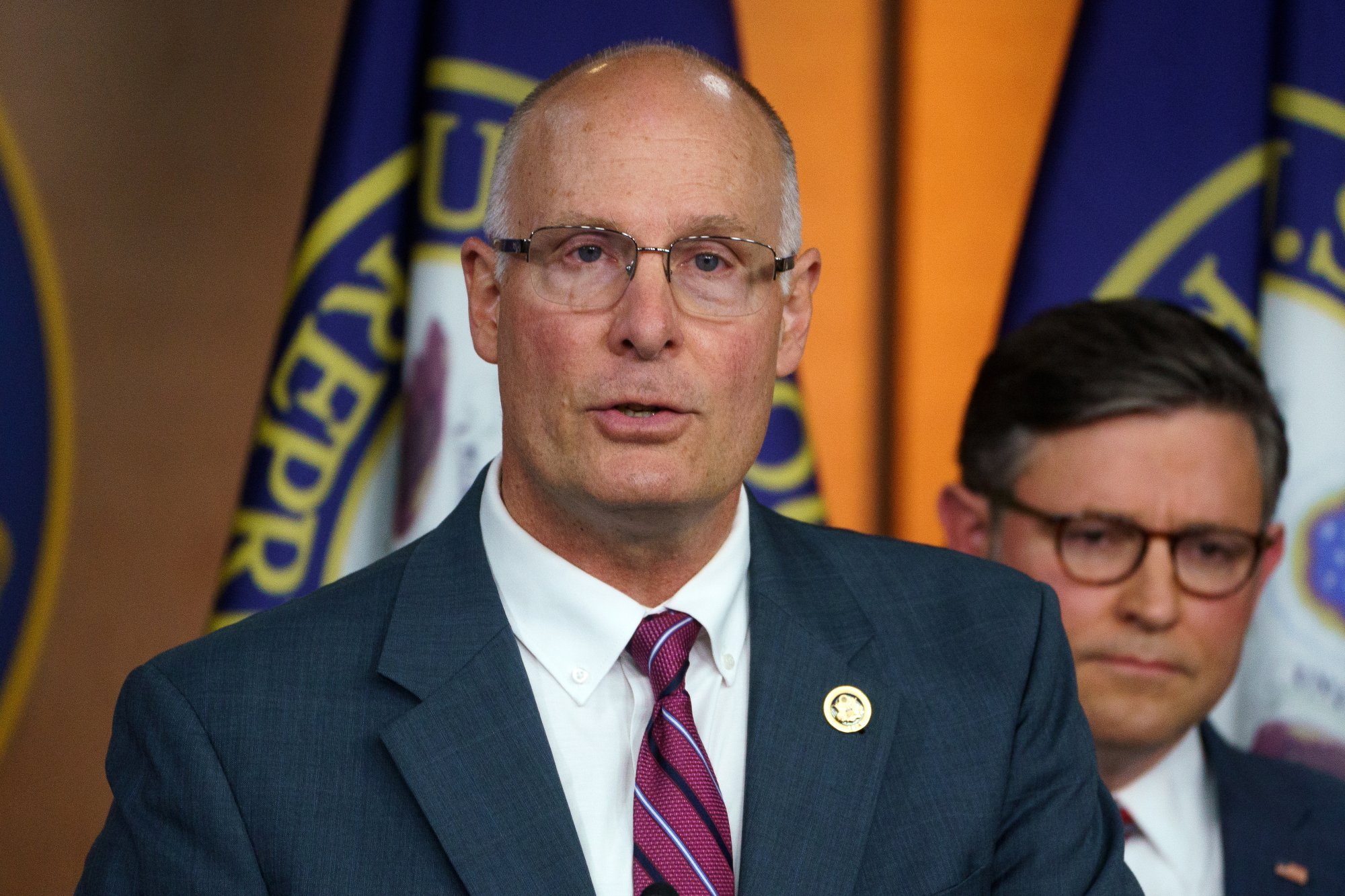The US House of Representatives passed a Republican bill restricting electric vehicle tax credits on Thursday that could jeopardise licensing deals between American car makers and Chinese EV battery companies.
The bill, which is opposed by the White House, was passed as the last act of China Week, a House Republican-led effort to advance China-related legislation. About two dozen such bills, including some sharply divisive ones, have cleared the chamber since Monday.
All legislation that passes the House must also clear the full Democrat-led Senate before it can be sent to the president’s desk to be signed into law.
Do you have questions about the biggest topics and trends from around the world? Get the answers with SCMP Knowledge, our new platform of curated content with explainers, FAQs, analyses and infographics brought to you by our award-winning team.
Sponsored by Representative Carol Miller of West Virginia, the End Chinese Dominance of Electric Vehicles in America Act of 2024 would restrict EV tax credits from cars using battery technology licensed from China if the licensing deal is more than US$5 million.
The bill passed 217-192, largely along partisan lines, with only seven Democrats supporting it.
Consumer EVs using batteries made in China are already prohibited from receiving tax credits from the Inflation Reduction Act (IRA), US President Joe Biden’s signature 2022 climate legislation.
But that law permits manufacturers licensing Chinese technology to build batteries in the US to receive the credits. It also allows for joint ventures that meet certain conditions.
Advocates of Chinese involvement argue that it could create jobs, let the US benefit from technology transfers and help produce electric cars more cheaply.
A few top American car makers have already taken the bite. The Ford Motor Company intends to license technology from China’s Contemporary Amperex Technology Co Ltd (CATL) – one of the world’s largest battery makers – to produce lithium-ion batteries at its planned battery facility in Michigan.
The plant was initially valued at US$3.5 billion and set to employ about 2,500 workers, though plans have since been scaled back.
General Motors is in talks with CATL about a licensing deal, Bloomberg reported on Thursday. Other companies, including Tesla, have reportedly also been in talks.
Miller’s bill comes as Republican lawmakers have raised concerns about national security risks posed by Chinese involvement in US-based battery plants.
The bill also follows actions by the Biden administration to curb the influence of Chinese EV and battery manufacturers, which currently dominate the global EV supply chain.
In May, the White House announced a quadrupling of so-called section 301 tariffs on Chinese-made electric vehicles to 100 per cent, along with increased tariffs for lithium-ion batteries and other clean energy products like solar cells produced in China.
Section 301 of the Trade Act of 1974 empowers the government to impose trade sanctions on foreign countries that violate US trade agreements or engage in unfair trade practices.
While the new tariff rates have yet to go into effect, the office of the US Trade Representative is expected to issue a final determination soon.
House Republicans argued on Thursday that the restrictions in the Miller bill would prevent Chinese billionaires from benefiting from American taxpayer funds and curb China’s dominance in the electric vehicle sector.
Democrats countered that the bill would effectively help China maintain its dominance because the IRA credits make US electric car production more viable.
A debate emerged among legislators from Michigan, the base of US auto making. Representative John Moolenaar, the Republican chair of the House select committee on China, argued that “the American people do not want CCP-affiliated companies setting up shop in their towns”, while Representative Debbie Dingell, a Democrat, contended that the bill would “lead to American job losses” and make it “harder for American companies to compete”.

Representative Judy Chu, a California Democrat, raised concerns about a provision in Miller’s bill that expands the list of entities restricted from receiving tax credits to include firms owned by “a citizen, national or resident” of China.
“This bill includes a harmful provision that would target immigrants who came to the United States from an adversary country, but who themselves have nothing to do with their governments of origin,” Chu said.
The White House released a statement opposing Miller’s bill on Wednesday. The legislation, it said, would “raise taxes on American consumers, punish American auto manufacturers, threaten good-paying auto jobs, undermine our administration’s work to protect the American automotive supply chain from unfair Chinese competition, and set back efforts to achieve energy security and combat climate change”.
The United Auto Workers also opposed the bill, calling it an “attack on good union jobs” and a blow to “nearly 2,000 battery manufacturing jobs in Michigan”.
Observers have said it is unlikely that all the bills passed this week will become law before Election Day, November 5, or before the end of the congressional session in January.
Elaine Dezenski, senior director of the Centre on Economic and Financial Power at the Foundation for Defence of Democracies, said that the most significant impact of the “China Week” bills might be the message they send to the business world.
“They signal to the marketplace, to investors, to those who are thinking about investment in China and elsewhere, that the government is acknowledging certain kinds of risks,” she said.
More from South China Morning Post:
- Senior US official praises China’s cooperation on export controls for technology transfers
- 2 Republicans ask Pentagon to add Chinese battery maker CATL to restricted list
- Canada signals further tariffs on Chinese, batteries, tech and critical minerals
For the latest news from the South China Morning Post download our mobile app. Copyright 2024.





